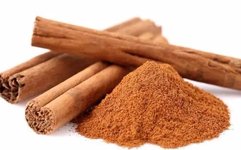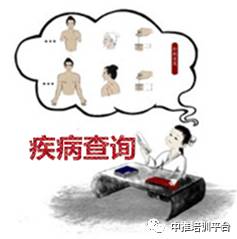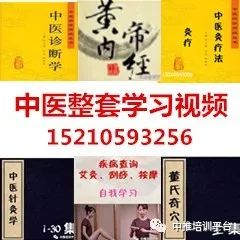Cinnamon is the dried bark of the cinnamon tree, a common spice and an effective traditional Chinese medicinal herb. It can open the meridians, dispel wind and dampness, and enhance flavor and aroma. Today, we will introduce the efficacy and functions of cinnamon, as well as the contraindications when consuming it.
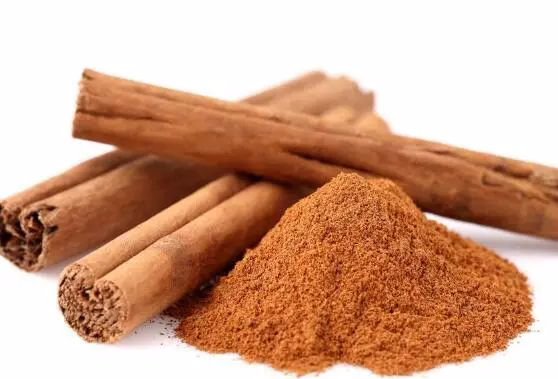
The Efficacy and Functions of Cinnamon
1. Sedative and Analgesic
Cinnamon is a traditional Chinese medicinal herb that can act as a sedative and analgesic. It contains natural active ingredients that, once absorbed by the body, can counteract excitement and provide pain relief. It is particularly effective in alleviating common neurological and joint pain, as its medicinal components directly affect the human central nervous system, reducing sensitivity to pain.
2. Preventing Thrombosis
Consuming an appropriate amount of cinnamon can also prevent thrombosis. The volatile oils and other active components in cinnamon enhance the body’s own anticoagulant capacity after absorption, increasing the activity of platelets in the blood and preventing harmful substances from damaging the myocardium. It helps maintain stable heart function and prevents the formation of blood clots.
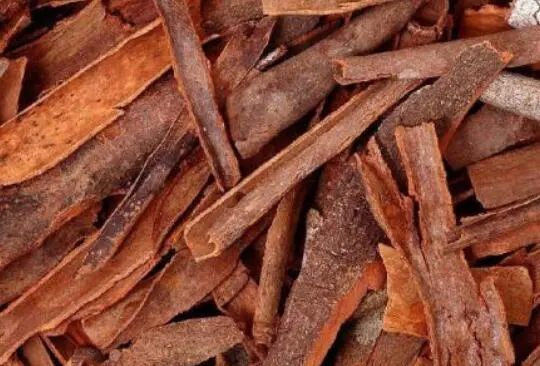
3. Preventing Gastritis
Regular consumption of cinnamon can also help prevent gastritis. This is due to the natural medicinal components in cinnamon that inhibit the activity of Helicobacter pylori in the body, preventing this bacterium from damaging the gastric mucosa. It can prevent the proliferation of gastritis and regulate gastric acid secretion, providing some relief for acid reflux and nausea.
Contraindications of Cinnamon
While cinnamon has excellent health benefits, it is a warming herb. Patients with Yin deficiency and excessive heat, as well as those suffering from heat diseases that injure Yin, should avoid consuming cinnamon, as it may exacerbate their condition. Additionally, excessive consumption of cinnamon can lead to symptoms of poisoning, such as nausea, vomiting, and dizziness, which can seriously harm health.
Cinnamon

Source: This product is the bark or coarse branch bark of the Lauraceae family, harvested from coarse branches or young tree trunks, also known as Guo Gui. It is also referred to as Yu Gui, Mu Gui, or Jian Gui.
Taste and Properties: Pungent, Sweet, Hot
Efficacy: Strengthens Yang, dispels cold, and alleviates pain.
Dosage: For internal use: decoction 2-5 grams, should be added later in decoction; powdered form taken 1-2 grams per dose, or made into pills or powders. The effect of cinnamon is relatively mild, so the dosage can be increased appropriately.
Effectiveness in Cancer Treatment: Cinnamon is commonly used to warm the middle, dispel cold, and strengthen Yang. The “Theory of Medicinal Properties” states: “Eliminates cough and counteracts reverse flow, resolves qi stagnation, alleviates abdominal cold pain, and is indicated for diarrhea and nasal polyps.” The “Ben Cao” states: “Breaks phlegm, dissipates blood stasis.” It is commonly used clinically for esophageal cancer, tongue cancer, and cervical cancer, particularly in cases of kidney Yang deficiency and cold damp stagnation.
Treatment for Esophageal Cancer:
50 grams of Rehmannia, 5 grams of cinnamon powder (taken in water), 2.5 grams of Ephedra, 15 grams of deer antler glue (melted), 10 grams of white mustard seed, 2.5 grams of charred ginger, and 5 grams of raw licorice. Decoction for one dose daily. (“Antitumor: The Efficacy of Traditional Chinese Medicine in Cancer Treatment”)
Treatment for Tongue Cancer:
3 grams of cinnamon, 9 grams of Indigo, 30 grams of Huangbai, and 0.6 grams of borneol. Grind into a fine powder and mix well, then apply an appropriate amount to the affected area daily. (“Anticancer Plant Medicines and Their Proven Formulas”)
Treatment for Cervical Cancer:
15 grams each of Codonopsis and Atractylodes, 9 grams of Aconite (pre-boiled), 5 grams of ginger, 6 grams of cinnamon, 15 grams of Cuscuta, 30 grams each of roasted Job’s tears, Poria, and honey-fried Astragalus, and 15 grams of charred Eucommia. Decoction for one dose daily. (“Antitumor: The Efficacy of Traditional Chinese Medicine in Cancer Treatment”)
Special Note: Avoid use in cases of Yin deficiency with excessive heat, internal heat, blood heat, and for pregnant women. Avoid red stone fat.
Note: Some text and image resources in this article are sourced from the internet. The purpose of reposting this article is to disseminate more information. If there are any errors in source attribution or infringement of your legal rights, please notify us immediately, and we will delete it promptly and apologize.
|
Click the icon to view |
|||
|
|
|
|
|
| Disease Inquiry | Free Live Broadcast | Clinical Videos | Medical Treasure Trove |
Click below to read the original text and scan the QR code to learn acupuncture and bone-setting for free.

